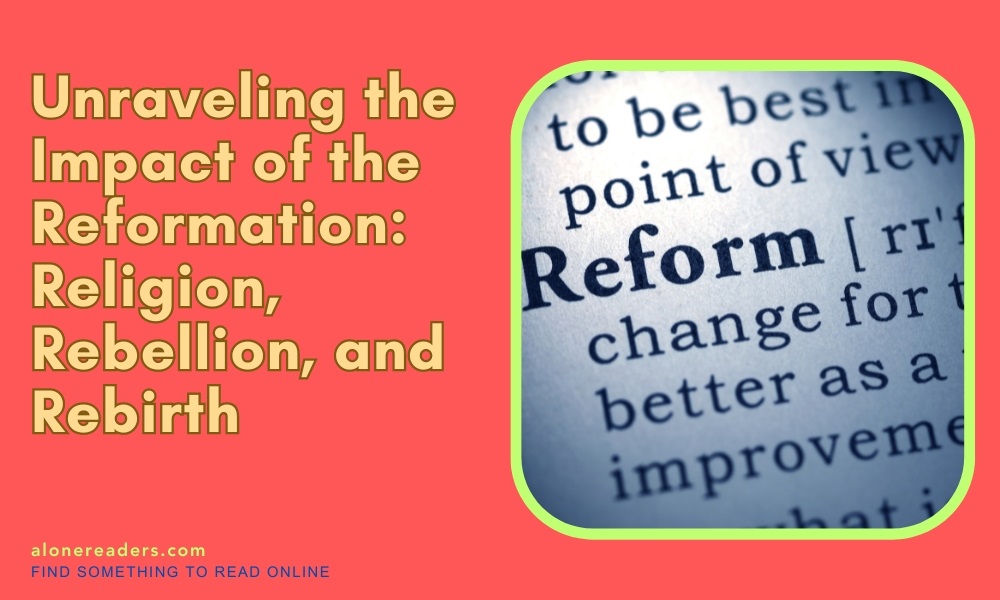
The Reformation, a pivotal epoch in European history, began in the early 16th century and fundamentally reshaped the religious, cultural, and political landscapes of the continent. Its origins can be traced back to 1517 when Martin Luther, a German monk and theologian, nailed his Ninety-Five Theses to the door of the Wittenberg Castle church. This act did not merely question the Catholic Church's practice of selling indulgences but also ignited a series of events that would lead to a seismic shift in religious thought and institutional structure.
Luther's criticisms of the Church were not entirely novel, as dissenting voices like John Wycliffe and Jan Hus had preceded him. However, the timing of Luther's dissent coincided with the rise of the printing press, a technology that proved instrumental in disseminating his ideas quickly and broadly. This dissemination sowed the seeds of challenge not only to the theological hegemony of the Catholic Church but also to its very structure and the political order of Europe.
As Luther's ideas gained traction, they inspired a wave of reformers across Europe, including Ulrich Zwingli in Switzerland and John Calvin in France, who later settled in Geneva. Each brought their theological nuances, thereby expanding the Reformation beyond a mere critique of corruption into a substantial religious movement. The diversity of thought within what came to be known as Protestantism led to the formation of numerous denominations, each with distinct beliefs and practices.
This fragmentation of Christendom had profound socio-political implications. The Holy Roman Empire, a complex patchwork of territories nominally under the control of the Emperor but largely independent, saw princes and city-states align with either the old Catholic order or the new Protestant sects based on a mixture of religious conviction and political expediency. The Peace of Augsburg in 1555, which allowed rulers to choose between Lutheranism and Catholicism as the official confession of their territories, attempted to quell the religious conflict but set a precedent for the religion of the ruler dictating the religion of the ruled.
England’s Reformation had its own character, driven by King Henry VIII's desire for an annulment the Pope would not grant. This led to the establishment of the Church of England and the subsequent religious reforms under Edward VI and the counter-reforms under Mary I, illustrating the significant impact of personal rule on religious policy. The religious turmoil in England culminated in the Elizabethan Settlement, which sought to define a middle way between Catholicism and Protestantism, albeit leaning towards the latter.
Beyond theology and politics, the Reformation influenced education and philosophy. Reformers advocated for the translation of the Bible into vernacular languages, which democratized access to scripture, previously the purview of Latin-literate clergy. This emphasis on personal interpretation of the scriptures laid the groundwork for greater literacy and education throughout Europe. It also fostered a new era of intellectual rigor, contributing to the development of modern science and philosophy.
Culturally, the Reformation left an indelible mark on the arts. In Northern Europe, Protestant iconoclasm led to a reduction in religious imagery in art, pushing artists to explore other themes such as landscape, secular portraiture, and still life. In contrast, the Catholic Reformation, or Counter-Reformation, galvanized the Roman Church to harness the arts as a vehicle for religious renewal and expression, epitomized by the Baroque style, which was characterized by dramatic realism and emotional intensity.
The economic consequences of the Reformation were also significant. The dissolution of monasteries and the confiscation of their assets in Protestant regions not only altered the economic landscape but also redistributed wealth and land, impacting social structures and contributing to the rise of the modern nation-state. Additionally, the Protestant ethic, as later articulated by Max Weber, linked Protestant virtues with the development of capitalism, suggesting that the Reformation influenced economic behaviors and attitudes.
In summary, the Reformation was more than a religious movement; it was a catalyst for a wide-ranging transformation that affected every aspect of life in Europe. From the dissolution of centuries-old religious and political structures to the birth of new intellectual and cultural paradigms, the Reformation fostered an environment of rebellion against traditional norms and a rebirth into the early modern world. Its legacy is evident not only in the religious landscape of today but also in the secular, philosophical, and social institutions that have shaped modern Western society.